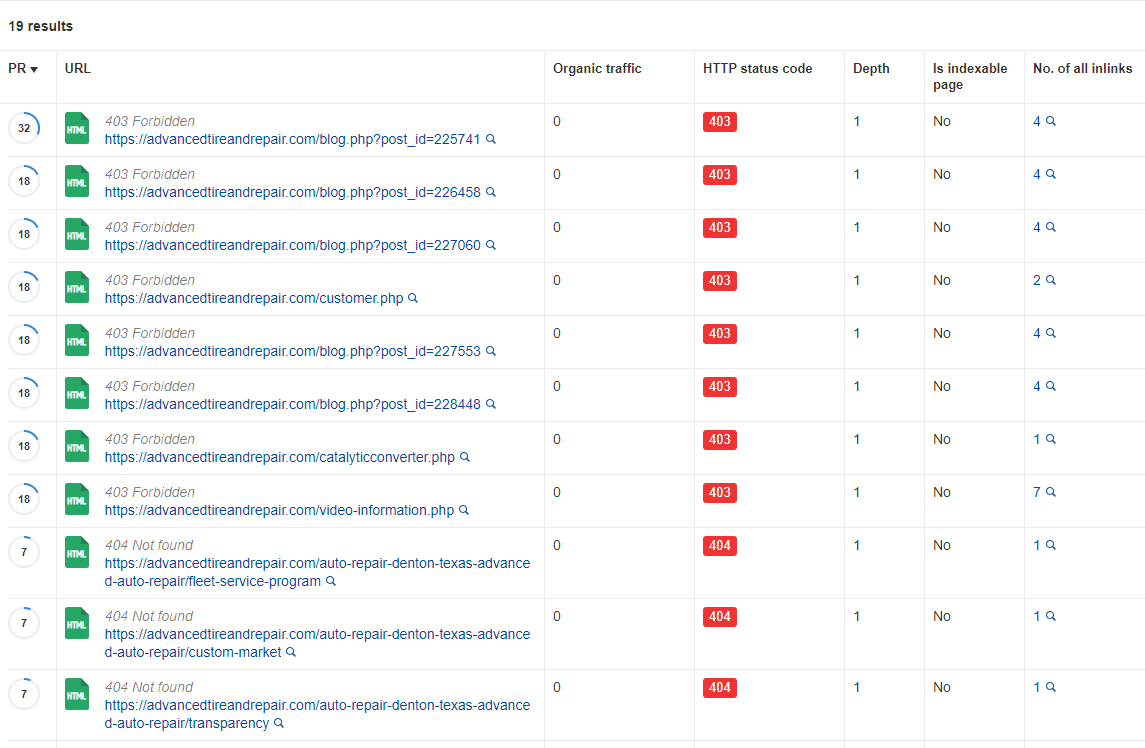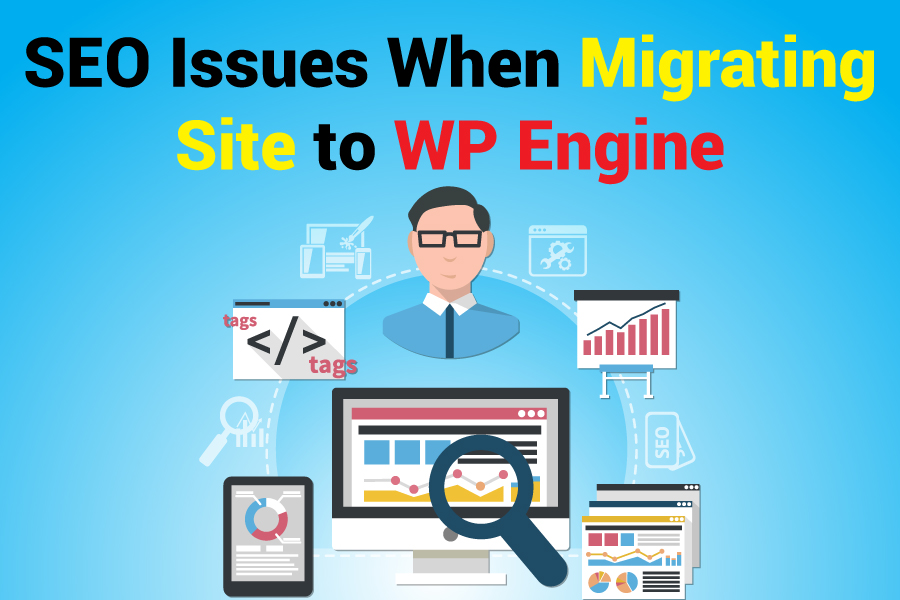Imagine transitioning your online presence to a new platform, only to see your traffic plummet due to overlooked SEO details.
Transferring a site while maintaining SEO rank can be challenging. During this process, changes in canonical tags, loss of schema markup, metadata, or broken links may affect your SEO status.
Most businesses experience a significant drop in search engine rankings post-migration due to poor SEO management. This highlights the importance of meticulous SEO planning during site migration.
As a site owner, you need to plan and execute SEO tactics when moving to a new platform. Therefore, proactive SEO steps that can increase your site value during migration are necessary. Join us as we explore the issues that may arise when moving to WP Engine, focusing on SEO.
We’ll cover changes during migration, pre-migration factors, and essential post-migration actions. For more detailed insights on optimizing your site’s SEO, visit WordPress SEO Consulting.
Overview of Website Migration
Website migration is moving your website to a new host or changing its domain name. The transition aims to improve your site’s performance, design, and functionality.
This can involve switching hosting providers, updating the content management system (CMS), or altering the URL structure.
In that case, you need to be meticulous when undertaking a website migration. A poorly executed migration can reduce your search engine rankings and traffic.
Therefore, you must redirect old URLs correctly and track the site’s performance after the migration.
Importance of SEO During Migration
Migrating your website requires careful attention to SEO to maintain your search engine visibility and rankings.
Without it, your site might lose its online presence, regardless of its design and functionality. Proper SEO performance during migration helps:
- Maintain site visibility
- Manage URL changes
- Optimize keywords in content and meta tags.
- Preserve quality content through optimization and formatting
- Manage server configurations and site speed
- Redirect links to maintain link profile and search visibility.
What is WP Engine?
WP Engine is a managed WordPress hosting platform known for its high performance, security features, and exceptional support.
It enhances WordPress with developer tools, performance, and security solutions. These include automated backups, enhanced security measures, and scalable architecture to handle varying traffic loads.
WP Engine empowers your freedom to create by providing premium solutions, services, support, and tools.
Whether you manage an online marketing, media, or merchant site, WP Engine offers specialized solutions.
These include managed WordPress hosting, eCommerce, enterprise WordPress, headless WordPress, and developer-centric tools. As a result, it enables you to create, manage, and optimize your WordPress websites with confidence.
Why Choose WP Engine for Website Hosting?

When it comes to hosting your website, WP Engine offers several benefits. Here’s why you should consider it:
- Performance Optimization: WP Engine’s infrastructure is designed for fast load times and enhanced site performance
- Support: WP Engine offers 24/7 access to expert support to quickly resolve any issues you encounter.
- Security: Your site is well-protected against potential threats with automated updates, daily backups, one-click staging, premium themes, malware scanning, and firewall protection.
- Scalability: Whether your site experiences regular traffic or sudden spikes, WP Engine can easily handle high volumes. Sites on our WP Engine experience a 40% increase in page speed, maintaining reliable uptime even during high-traffic periods.
- Developer Tools: WP Engine provides staging environments and other tools that make development and deployment smooth and efficient.
With these features, WP Engine ensures your website performs well, stays secure, and can grow with your needs.
Common SEO Issues When Migrating a Site to WP Engine
Website migration impacts your site’s traffic and SEO in various ways. It can improve performance and user experience and boost search engine rankings when managed effectively.
However, mishandling the process can result in traffic loss, diminished search visibility, and a negative user experience.
Here are the potential issues and risks you might encounter:
1. Loss of Rankings
One of the most immediate concerns during site migration is the loss of search engine rankings. Changes in site structure, content, or URLs can confuse search engines, leading to a temporary or permanent drop in rankings.
2. Decrease in Organic Traffic
Migrating your site to WP Engine can decrease organic traffic. Potential issues, such as search engines not promptly recognizing the new site structure, can lead to lower rankings and reduce visibility in search results.
3. Broken Links and 404 Errors

During site migration to WP Engine, broken links and 404 errors may occur. This is due to incorrect redirection setups or mismatches between the old and new URL structures.
Suppose URL redirects are not correctly configured, or there are inconsistencies in URL formats between the old and new sites. In that case, visitors may encounter broken links, resulting in an adverse user experience and potential SEO implications.
4. Duplicate Content Issues
Site migration to WP Engine can lead to duplicate content issues if not appropriately managed during the transition process.
Content duplication across multiple URLs can happen due to incorrect configuration or inconsistent redirection. This can confuse search engines and risk harming your site’s SEO performance.
Pre-Migration Checklist
When considering website migration, thorough planning is key to avoid potential issues. Before making the switch to a new host, consider the following:
- Ensure that the new host offers superior services compared to your current provider.
- Conduct a thorough SEO audit to understand the current performance metrics and identify areas that need attention.
- Analyze metrics such as page speed, bounce rate, and conversion rates.
- Review the existing backlinks to ensure they are preserved during migration.
- Create a complete backup of all site files and databases.
- Record the existing URL structure, meta tags, and sitemap to ensure they are replicated on the new site.
- Identify high-performing content that needs to be prioritized during the migration.
- Utilize WP Engine’s tools and resources to facilitate a smooth migration.
- Set up a staging environment to test the migrated site before going live.
Post-Migration Actions
- Test and Validate Your Site: Test all site functionalities, including forms, shopping carts, and media, to ensure they work correctly. You can use tools like Google Search Console to check for crawl errors or issues.
- Monitor Site Performance: Monitor rankings and traffic to identify any drops. Identify and fix any issues that may arise to minimize their impact.
- Perform Technical SEO Checks: Use SEO tools to identify and fix broken links. Additionally, verify that all 301 redirects are correctly implemented. Also, ensure the XML sitemap is updated, and the robots.txt file is configured correctly.
How Does SEO Affect Website Traffic and Ranking?
Search engine optimization (SEO) significantly impacts website traffic and ranking. It influences how search engine algorithms evaluate and organize website information. Here’s a breakdown of its essential functions:
- Enhance Visibility: Optimize your website for relevant keywords, tags, and descriptions. This will increase its likelihood of ranking higher on SERPs, thus attracting more clicks.
- Establish Authority: Search engines like Google assess factors such as backlinks and content quality to gauge a site’s credibility. Effective SEO builds trust and authority over time for search engines and users.
- Ensures Relevance: SEO ensures your website content aligns with user search queries. By optimizing for relevant keywords and user intent, you attract the right audience and increase engagement, leading to conversions.
- Improves User Experience: SEO factors like site speed and mobile compatibility directly impact user experience. By optimizing these aspects, you provide visitors with a smoother, more enjoyable browsing experience.
SEO Factors To Consider During the Migration Process
Poor SEO management can lead to search engine crawlers misunderstanding your new site’s structure and content, significantly dropping organic visibility. To avoid this, consider these key measures:
Maintain the URL Structure:
Preserve the URL structure to maintain SEO value. Keeping URLs consistent helps search engines recognize the content, thus preserving rankings.
If URL changes are necessary, implement 301 redirects to inform search engines of the new locations, ensuring link equity is transferred.
Ensure Accurate Content Transfer:
Use reliable tools to transfer content without errors. During migration, maintain On-Page SEO elements such as meta titles, descriptions, and headers.
Manage Internal Links:
Update internal links to align with the new site structure. Relative links can be beneficial in maintaining link integrity during migration.
Tips for Successful Site Migration to WP Engine
Consider these practices to ensure a smooth transition to WP Engine without compromising your site’s SEO performance:
- Implement 301 Redirects: Redirect old URLs to new ones to maintain SEO performance.
- Prioritize Mobile Optimization: A mobile-friendly design will impact user experience and search rankings. Ensure the new site is responsive and functions well on all devices.
- Avoid Duplicate Content: Handle URLs properly and avoid content duplication. Utilize canonical tags to indicate the preferred version of content to search engines.
SEO Tools for Migration to WP Engine
Using the right SEO tools can facilitate a smooth migration. Some of the recommended Tools include:
- Conducting SEO Audit: Ahrefs, Screaming Frog, and Moz can help conduct comprehensive SEO audits.
- Monitoring Post-Migration Performance: Google Analytics, SEMrush, and other monitoring tools can help track performance post-migration.
WP Engine Features
The following are WP Engine features that could help in SEO during migration:
- Site caching
- CDN integration
- Site Security
Also, take advantage of WP Engine’s migration support and resources.
Conclusion
When migrating your site to WP Engine, you must address potential SEO issues head-on. Failure to do so can result in a loss of rankings, decreased organic traffic, and other risks that could hinder your online visibility.
Follow the above pre-migration checklist and implement best practices during and after migration to ensure a seamless transition. With WP Engine’s features and support, you can confidently navigate the migration process.

